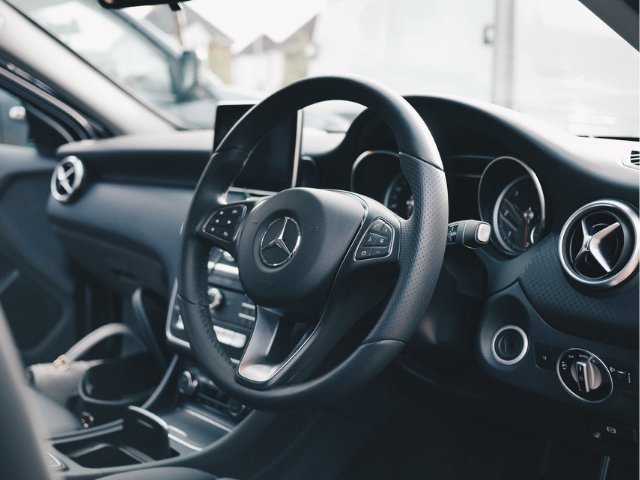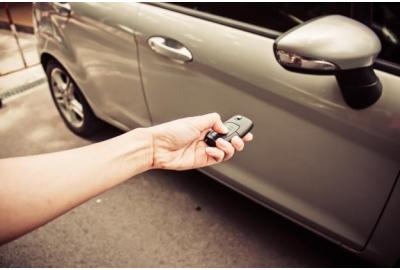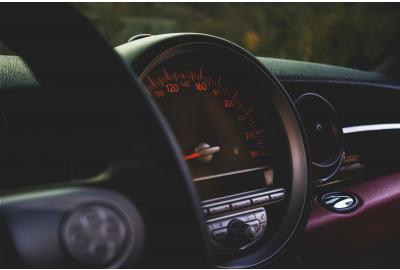Is It Worth Taking Out Private Car Excess Insurance?

Is It Worth Taking Out Private Car Excess Insurance?
Private car excess insurance is a cost-effective way for people to avoid losing a significant financial outlay on a motor insurance policy. Excess insurance cover basically covers the cost of the excess stated in your car insurance policy.
In short, private car excess cover eliminates the risk of paying high excess in the event your car is involved in an accident, stolen or damaged by fire or flood.
You may wonder whether you need to pay private car excess insurance if you’re already paying a premium on your car insurance. It’s a good question and excess insurance cover won’t be appropriate for everybody.
In this article, we cover the pros and cons of private car excess insurance, whether it will benefit you financially and how you can make excess cover work in your favour.
What Is Private Car Excess Insurance?
When you take out car insurance you will find an ‘excess clause.’ This clause states a sum of money that is payable by the insured if you make a claim on the insurance policy.
You may also see the excess clause described as a deductible.
Private car excess insurance is optional. It runs alongside your car insurance policy but offers more protection if you need to repair or replace your car.
When you take out car insurance, the policy comes with a compulsory excess payment. This is the amount you are obligated to pay upfront when you make a claim on your car insurance policy.
For example, if your car insurance policy has an excess of £750, you will have to pay the first £750 towards the repair or replacement of your vehicle.
Depending on the cost of your car, the excess can be high. You can choose the limit so you only pay the lowest excess, but this means you will pay more in monthly premiums.
Subsequently, most motorists opt for high excess and pay lower premiums. In general, this makes good financial sense. Paying lower premiums may mean you’re more likely to save money over the course of the insurance contract.
Problems arise, however, if your car is written off or stolen. You are then left paying for a car you no longer have, then lose the excess stipulated in your car insurance policy.
And premium rate excess payouts could be anywhere between £1000 and £2000.
Private car excess insurance means you won’t lose anything. The excess is covered for you, so you break even.
It’s also worth noting that, in most cases, when you make a claim on your car excess insurance, you must pay the excess upfront. This means paying for the cost of repairs or replacement out of your own pocket.
This can cause a financial strain on some individuals and families, especially in the current financial climate.
The private car excess insurance we offer at Bettersafe is the only product of its kind on the market that does not force you to pay the excess first. This means that any claim you make on your primary car insurance policy will be paid by us.
For example, we pay the garage or car sales company the excess directly. We also endeavour to resolve the issue as quickly as possible so that you are not inconvenienced for too long.
What Does Private Excess Insurance Cover?
Our private motor excess insurance covers you for:
- Accidents, irrespective of who is at fault.
- Where your vehicle had been stolen but recovered damaged.
- If your vehicle was damaged as the result of a fire.
- If your vehicle was vandalized by a third party.
- Any situation where you have made a successful claim on your main car insurance policy and that claim had been subject to an excess deduction!
What Is The Purpose Of A Car Excess Cover?
You may be wondering why you should have to pay an excess when you are already paying monthly premiums for car insurance.
It’s a good point.
The reason for excess is so insurance companies eliminate fraudulent claims. Without the excess clause, it would be easy for drivers to make claims for all manner of damages - which would be costly for insurance companies.
And if fraudulent claims are expensive for insurance companies, the cost of car insurance would be expensive for drivers.
So, car excess benefits drivers - unless you need to make a claim on an insurance policy that carries a high excess.
Why Do I Need Private Car Excess Insurance?
Not all drivers need private car excess insurance. It’s an additional cover. However, it will avoid you from any financial loss in the unfortunate event that your car is involved in an accident or vandalized.
Drivers that are on the road every day are statistically at a higher risk of being involved in an accident. If you don’t have a garage or safe storage area for your car there is also a greater risk of it being stolen or vandalized.
In these situations, car excess cover could be advantageous - especially if you do not have the financial reserves to pay for the excess from your own pocket and wait until the insurance claim payouts.
People that rely on their car for work such as taxi drivers or delivery services should also consider taking out private car excess insurance.
It’s not unheard of for drivers to take out loans to cover the cost of the excess and get their car back on the road. This naturally costs more in the long term.
Compulsory & Voluntary Excess Explained
When you take out car insurance you are obligated to pay a set amount in the event of a claim on the policy. This is known as compulsory excess.
In addition to compulsory access, there is also voluntary excess. It’s important to understand the difference between the two.
Compulsory Excess Cover (Or Mandatory Excess)
Compulsory excess is set the amount you must pay from your own pocket. Oftentimes, the payment will be upfront. Some insurance companies pay the excess for you and then deduct it from the final claim.
Mandatory insurance is set by the insurance company. Once the amount is agreed in the contract, it cannot be changed. The amount of excess has certain variants, but you should expect to pay anywhere between £250 to £2000 in excess.
Voluntary Excess Cover
Motorists have the option to pay a voluntary excess. On the one hand, agreeing to pay voluntary excess in addition to the compulsory excess means you will have more to pay if you make a claim on your car insurance.
For example, let’s say the compulsory excess is £500. You also agree to voluntary excess of a further £500. This would mean that you would be responsible for paying the first £1000 for repairs or replacement to your car.
If you have a prang and need some repairs done to the bodywork, it’s unlikely that you would be able to claim on your insurance. Likewise, if the damages only amount to a little over £1000 you would have to consider whether you will pay more after losing your no claims bonus.
When you take all that into account volunteering to pay extra excess sounds like madness. However, the advantage of voluntary excess is that it lowers the premium of car insurance. This means you will pay less on your car insurance each month.
Voluntary excess is, therefore, advantageous if you don’t make a claim on your car insurance policy. If you’re involved in an accident or your car is stolen and/or vandalized, however, you lose out.
In many cases, the best solution is to agree to voluntary excess cover and lower your monthly premiums. Then take out private car excess insurance alongside it at a lower rate. You can get car excess cover for as little as £20-£30 a year.
High vs Low Excess: What To Consider
The decision to pay excess can be a dilemma. Without being able to predict the future, you can’t forecast which will benefit you the most. It’s a bit of a gamble.
In general, paying higher excess carries more risk because you will have to pay more if you submit a claim. On the flip side, if you want to protect your monthly outgoings and have more cash to spend on your lifestyle choices, raising the voluntary excess amount means you will pay lower premiums. Your decision really hinges on your current financial circumstances. Before you decide which option is best for you, it would be best to consider the following...
How Often Do You Drive?
If you don’t drive very often, there is statistically less risk of being involved in an accident. In this situation, you would benefit more from paying lower monthly premiums and higher excess.
Where Do You Live?
Even if you are statistically less likely to be involved in an accident, there is still the risk of your car being stolen and vandalized. Do you live in a high-risk area, and do you have a garage or protected driveway where you can store your car when it's not in use? Almost 75,000 cars were stolen in the UK last year - a 33% increase from 2019. Despite the improvement of car security locks, car theft in the UK is big business.
Value Of Your Vehicle
Expensive cars also come with higher excess payments and higher premiums. Given the national average of car insurance in the UK is almost £450, you could be better off agreeing to a higher excess.
How Much Is Left On Your Finance?
If you’ve taken out credit to purchase your car, lower premiums could help make monthly outgoings more manageable, but lower excess will be more advantageous if your car is written off. Since your car will be irreparable, you will pay less excess and get more back from your insurance policy.
In this scenario, you’re back to deciding what the statistical risk of losing your car is versus the amount you can save on your monthly outgoings.
It’s worth shopping around and doing some back of the envelope calculations.
The simple option, and in many cases, the smartest choice is to take out private excess cover alongside your primary car insurance. Excess insurance is the only way to make sure you are financially covered in a worst-case scenario.
What Is Not Covered By Excess Insurance?
Private excess insurance may not cover you for every scenario - so read the small print and make sure you know exactly what your covered for and what you’re not covered for.
With Bettersafe you won’t be covered in the following situations:
- If the incident which resulted in making a claim on your primary motor insurance policy occurred before the start date of the policy.
- If no Excess was paid by you or was deducted from the claim settlement by the insurer of your primary policy.
- If Your claim was not successful or was for less than the amount of the excess.
- If your claim was only in respect of glass replacement.
For more information about our private excess insurance, contact a member of our knowledgeable sales team on +44 (0) 20 3740 4431 or email: enquiries@bettersafe.com.








